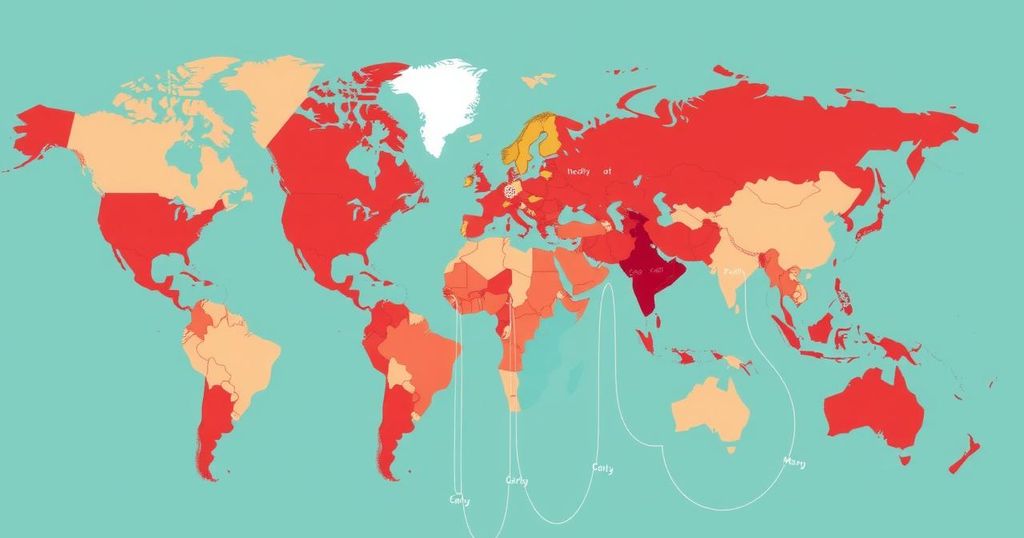Weather
21 KERALA BATTALION NCC, AFRICA, ASIA, BRAZIL, CAMBODIA, CONSUMER PROTECTION AGENCY, FOOD POISONING, FOOD SAFETY, KA, KARNAIL SINGH, KERALA, NATIONAL CADET CORPS, NCC, NIGERIA, NORTH AMERICA, NUTRITION, PUBLIC HEALTH, RAIN, SIHANOUKVILLE, SINGH, SOUTH AMERICA, UNITED STATES, WORLD HEALTH ORGANIZATION
Elena Martinez
0 Comments
Global Food Poisoning Incidents Highlight Urgent Need for Safety Protocols
Food poisoning incidents have recently emerged worldwide, affecting individuals in Cambodia, India, Brazil, Nigeria, and the United States. These occurrences include severe outbreaks linked to restaurants, local vendors, and mass events, highlighting the need for enhanced food safety regulations and monitoring.
Recent food poisoning incidents have emerged across various countries, highlighting serious public health concerns. In Cambodia, a city hall meeting was disrupted by a food poisoning outbreak resulting from contaminated sandwiches, causing multiple hospitalizations. In India, children fell ill after consuming shawarma, while a significant incident at a military camp led to an assault on an Army officer. Brazil reported a tragic poisoning that claimed a teenager’s life following the consumption of contaminated fish. In Nigeria, a bride faces charges connected to a wedding reception that resulted in food poisoning, and in the United States, a mass food poisoning incident affected flight attendants who are now seeking protection for their rights. Each of these reports underscores the urgent need for improved food safety protocols and vigilant oversight in food preparation and handling.
Food poisoning remains a critical public health issue globally, often resulting from bacterial contamination due to improper food handling, inadequate sanitation, and negligence. This report encapsulates various incidents that have raised alarms about food safety standards in multiple countries. Instances of mass poisoning during public gatherings, school settings, and special events indicate systemic vulnerabilities, prompting calls for stricter regulations and better education regarding food safety practices.
The recent surge in food poisoning cases across the globe illustrates the urgent necessity for enhanced food safety measures and accountability within the food service industry. The incidents in Cambodia, India, Brazil, Nigeria, and the United States exemplify the pervasive risk associated with insufficient food safety practices. Stakeholders, including government agencies and food service providers, must collaborate to implement stringent food safety protocols to protect public health and restore confidence in food security.
Original Source: www.foodpoisoningnews.com




Post Comment